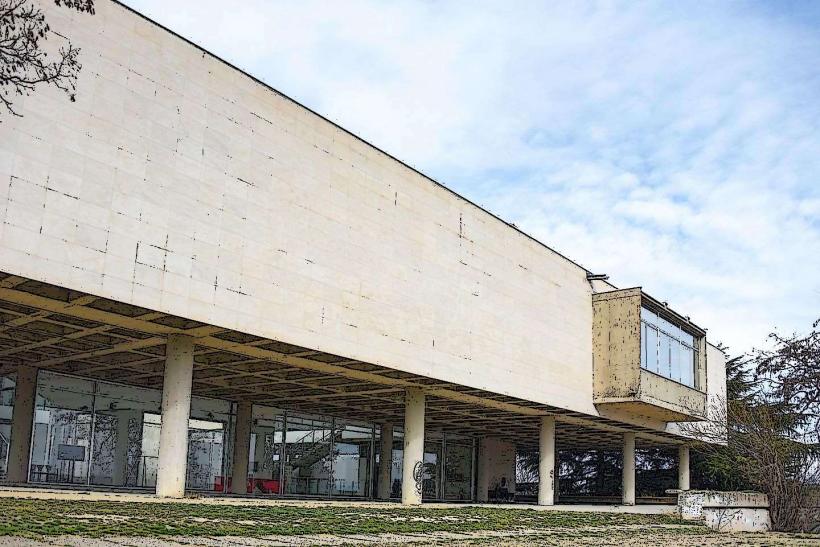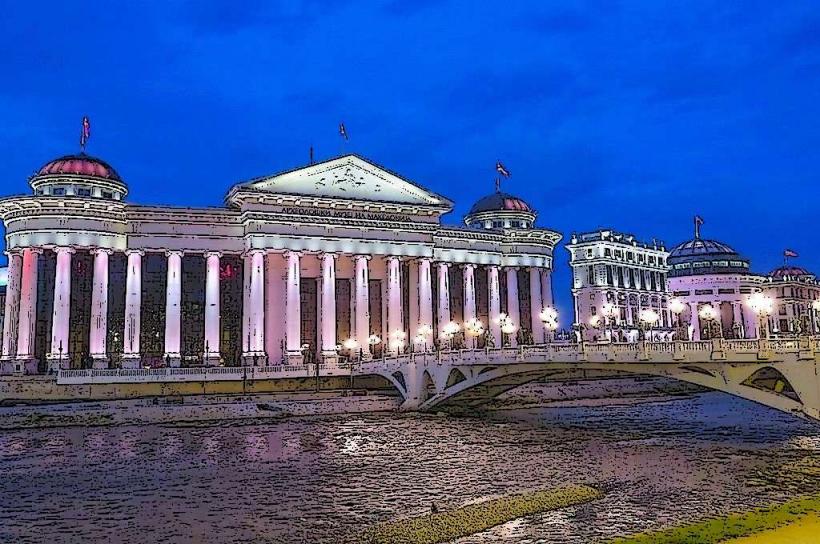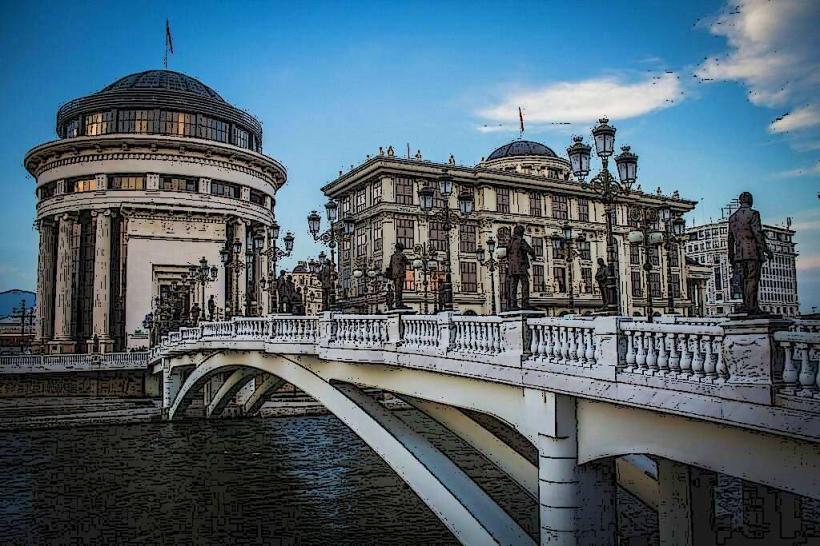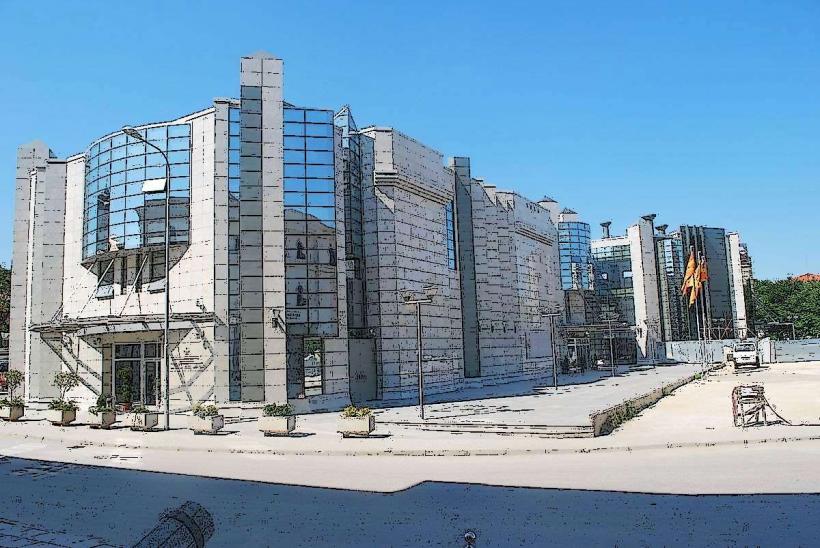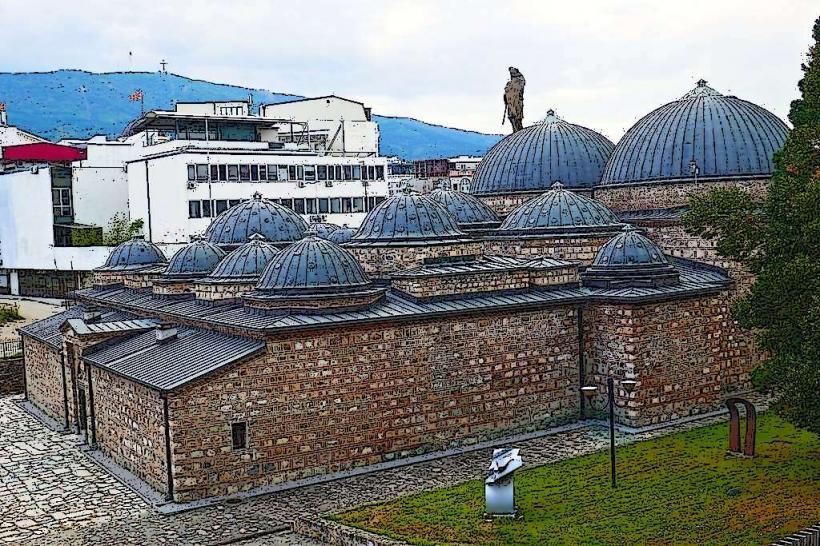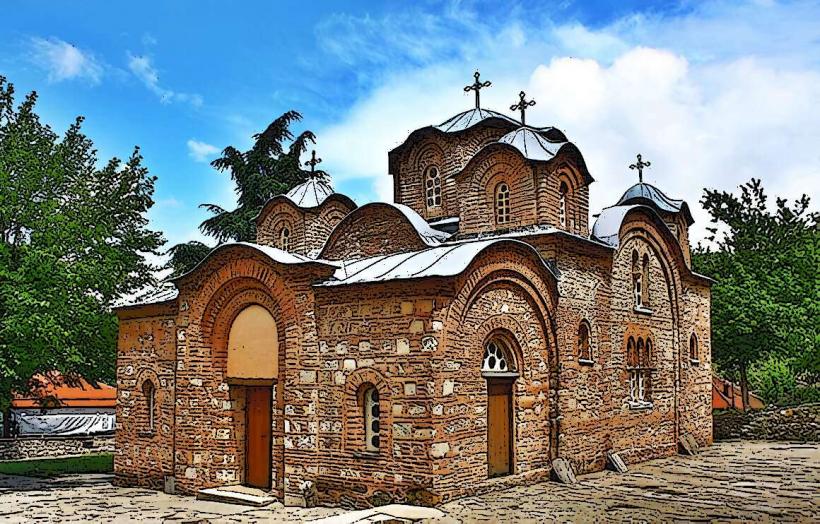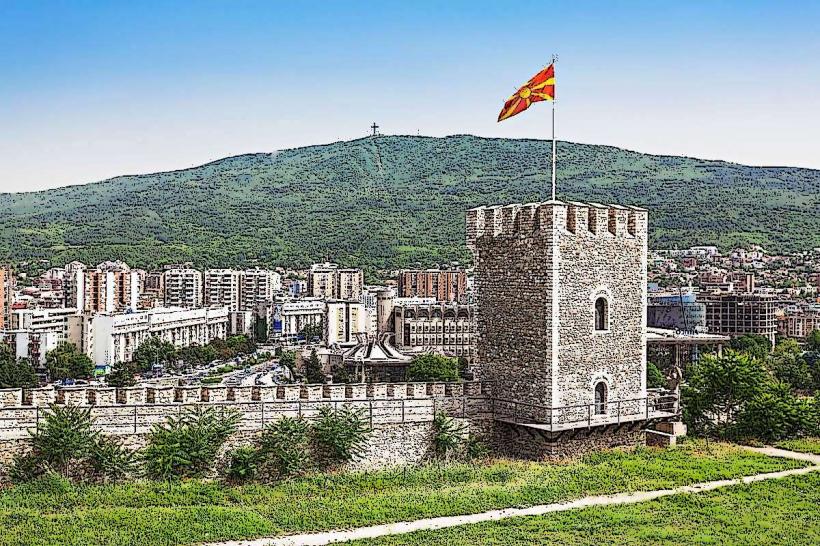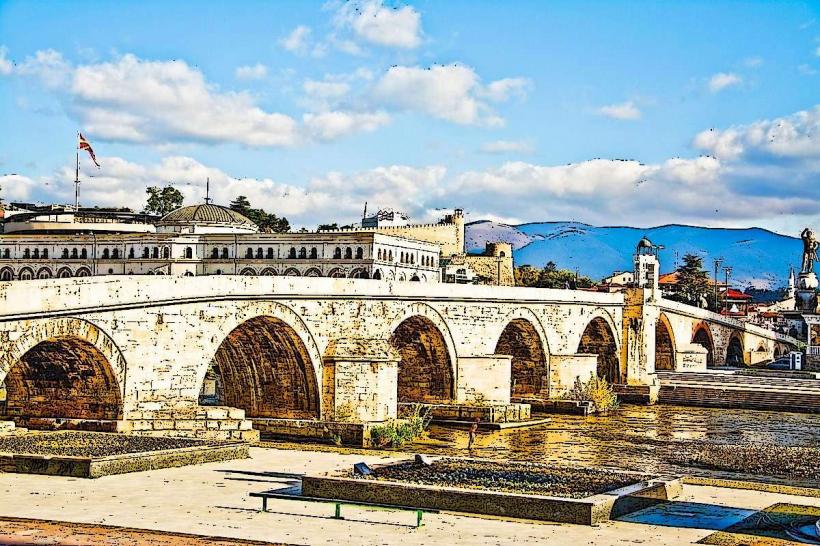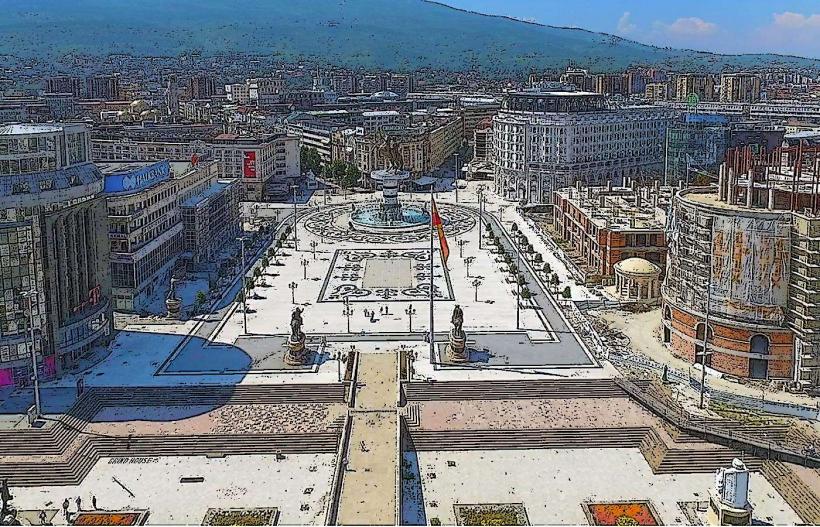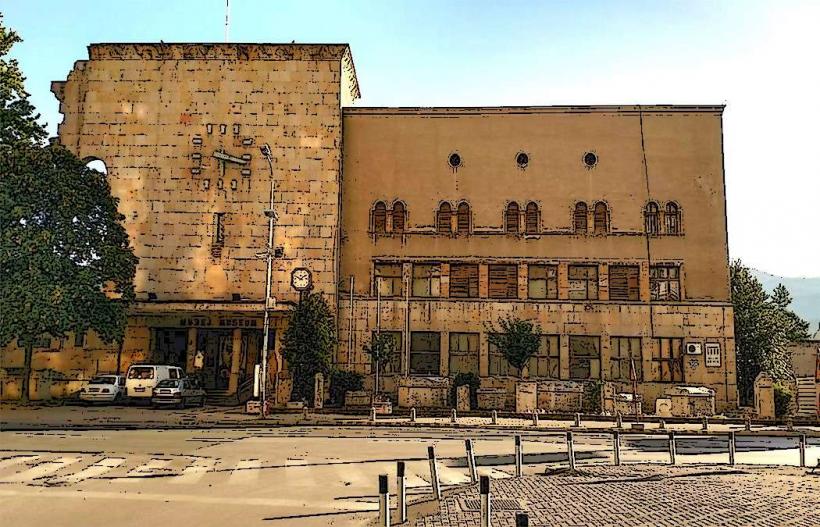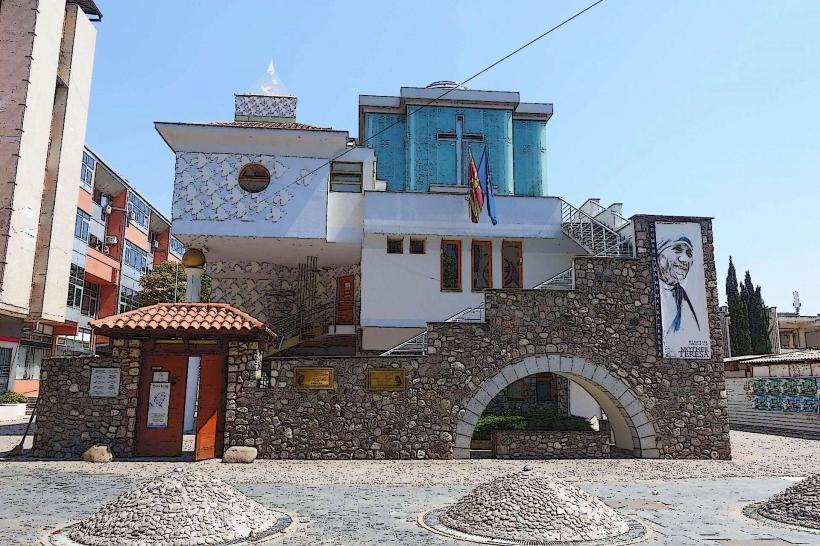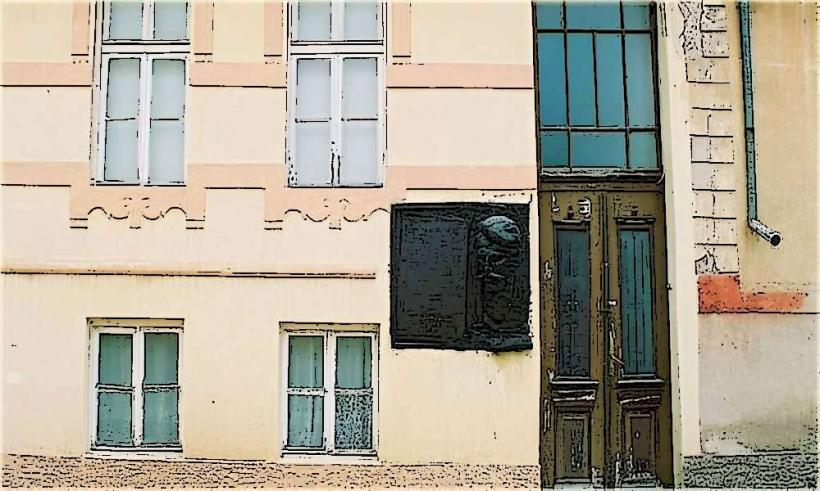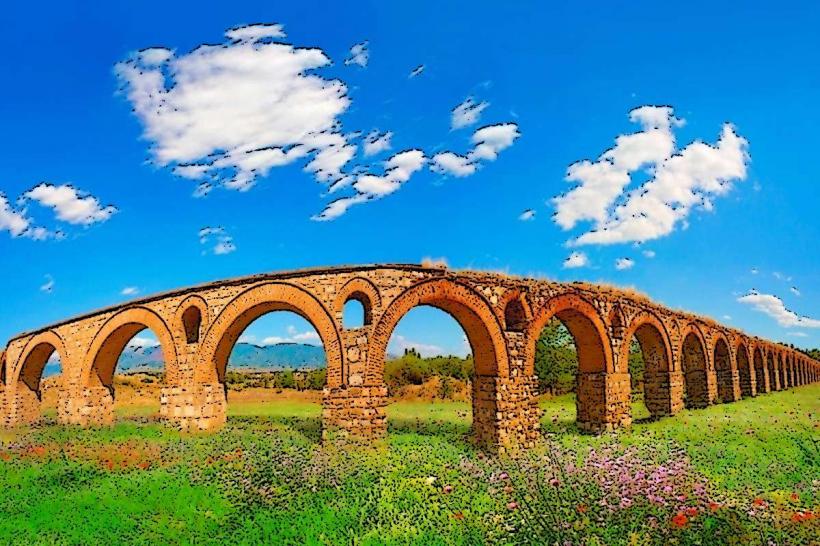Information
Landmark: Alexander the Great MonumentCity: Skopje
Country: North Macedonia
Continent: Europe
The Alexander the Great Monument, officially named "Warrior on a Horse" (Воин на коњ, Voin na Konj), is one of the most iconic and controversial landmarks in Skopje, North Macedonia. Situated in the heart of the city’s Macedonia Square, the statue is part of the Skopje 2014 project, which aimed to enhance the city’s aesthetic appeal and emphasize its historical and cultural identity.
Overview
- Location: Macedonia Square, Skopje
- Unveiled: September 8, 2011 (to commemorate North Macedonia's Independence Day)
- Height: The statue stands 14.5 meters (47.5 feet) tall, while the entire monument, including the pedestal and fountain, reaches about 28 meters (92 feet).
- Materials: The statue is made of bronze and rests on a cylindrical marble pedestal.
Design and Features
The Warrior on Horseback:
- The central figure depicts a warrior, widely understood to represent Alexander the Great, riding a rearing horse.
- Alexander is portrayed with a sword in his raised hand, symbolizing his military prowess and leadership.
- The dynamic pose of the horse adds to the monument's grandeur, emphasizing motion and strength.
Pedestal:
- The cylindrical pedestal is decorated with bronze reliefs illustrating scenes from Alexander the Great’s conquests and Macedonian history.
- Smaller statues of lions encircle the base, symbolizing strength and courage.
Fountain:
- The monument includes a large fountain at its base, with jets of water synchronized to music and lights.
- The fountain performs elaborate displays, especially in the evening, when colorful lighting enhances its aesthetic appeal.
Historical and Cultural Significance
- The monument reflects Macedonian national pride and highlights Alexander the Great as a central figure in the country’s historical narrative.
- It underscores the connection between modern North Macedonia and the legacy of ancient Macedon, which Alexander ruled during his conquests.
Controversy
The monument has been a subject of both admiration and criticism:
Admiration:
- Many locals and visitors view it as a symbol of national identity and a centerpiece for Skopje.
- It attracts significant tourist interest and has become a focal point for cultural events.
Criticism:
- The statue has sparked disputes with Greece, which views Alexander the Great as part of its own historical and cultural heritage.
- Critics argue that the monument was an expensive addition under the Skopje 2014 project, which faced scrutiny for prioritizing lavish aesthetics over practical city improvements.
- It also triggered debates over historical interpretation and nationalistic symbolism.
Tourism
- The Alexander the Great Monument is a popular tourist attraction in Skopje, drawing visitors for its scale and artistic detail.
- The fountain’s light and music show, particularly at night, is a major highlight for tourists and locals alike.
- Visitors often take photographs of the statue against the backdrop of Macedonia Square, which is surrounded by modern and historic buildings, including the Stone Bridge and the Archaeological Museum.
Conclusion
The Alexander the Great Monument is an impressive blend of artistry, history, and national symbolism. While it has its share of controversies, it remains a defining landmark of Skopje and a key representation of North Macedonia's cultural identity. Its commanding presence and aesthetic appeal make it a must-see for anyone visiting the capital.


